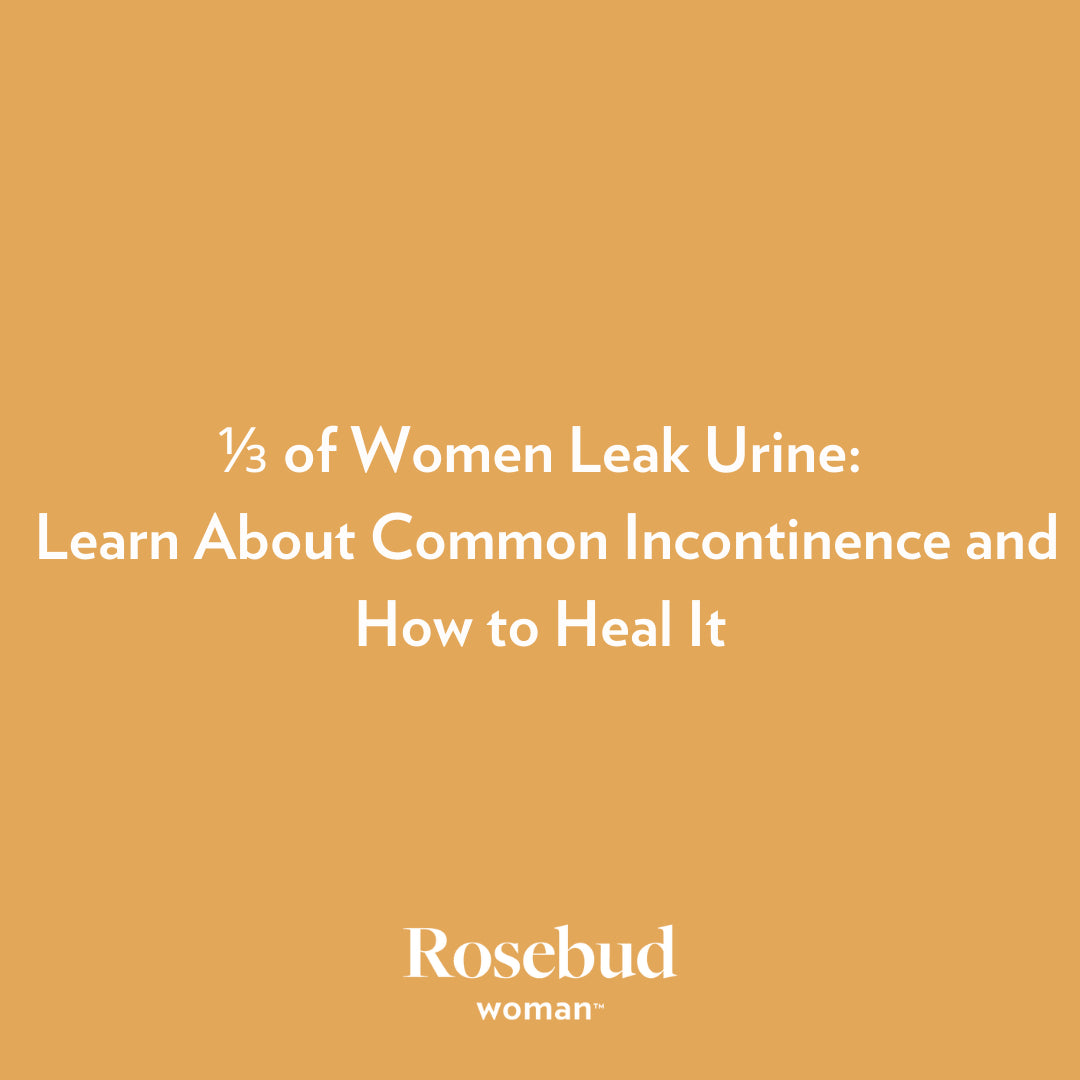⅓ of Women Leak Urine: Learn About Common Incontinence and How to Heal It
According to Hopkins Medicine, over 25 million adult Americans experience temporary or chronic urinary incontinence (UI). This condition can occur at any age, but it is more common in women over the age of 50. Moreover, “...prevalence of this problem increases with age, as up to 75 percent of women above age 65 report urine leakage."
Top Symptoms of Urinary Incontinence aka Overactive Bladder
- Frequent need to urinate
- Inability to hold urine before making it to the restroom
- Feeling incomplete after emptying the bladder
- Urine leakage from sneezing, laughing, exercising, or couching
The Main Cause of Urinary Incontinence
Women develop UI most commonly during pregnancy and or after birth or from hormonal changes such as menopause.
The Four Types of Urinary Incontinence
Stress Incontinence: "According to UCSF Health, In Women with Stress Incontinence an increase in pressure in the abdomen momentarily puts physical stress on the pelvis, causing urine loss. Activities such as coughing, sneezing, laughing, exercising and even standing up can cause leakage in women with this type of incontinence. Treatments include behavioral therapies — such as biofeedback and pelvic muscle exercises — vaginal inserts, electrical stimulation and surgery.
Urgency Incontinence: According to the National Institute on Aging, “Urgency Incontinence is the accidental or unintended release of urine or the frequent need or sudden urge to urinate.”
Functional Incontinence: The inability to reach the restroom due to physical or mobility conditions that cause a person to not be able to get to the toilet on time- i.e. post surgery, disabilities, injury, etc.
Overflow Incontinence: When the body produces more urine than the bladder can hold, urine can overflow.
The Impact on Women’s Lives
- Avoidance of sex or intimate activity due to embarrassment and fear of Coital UI, or the accidental leakage of urine during sex.
- Urinary Incontinence can cause depression and a sense of hopelessness for intimate relating.
- Between 25-50% of women with Urinary Incontinence also experience Female Sexual Dysfunction or FSD.
- Up to 23% of women take time off work because of incontinence.
- Changes in sex life that affected both them and their partners and created a feeling of ‘loss of femininity’ related to the inability to have sex due to UI.
Treatment Options: How We Can Address these Symptoms
Whether it’s behavioral treatments like biofeedback or pelvic physical therapy, cutting out bladder stimulating or non-surgical or surgical treatments or supplements, we recommend you explore these resources to help make your day to day life more harmonious.
Talk to a gynecologist, urologist, or pelvic physical therapist:
During the 4 years Rosebud Woman has been around, we’ve met thousands of health care providers and practitioners and attended numerous conferences and events focused on women’s sexual health. In addition to finding intimate care products and women’s health practitioners on our site directory, we also recommend checking out Prosana, the newly debuted educational platform from the The International Society for the Study of Women’s Sexual Health.
Explore over the counter solutions and treatments like:
- Amsella - the non-surgical, non-invasive treatment for UI (discovered during our time at ISSWSH’s Annual Conference)
- My LilyBird - quick absorbent underwear and supplements available on subscription and mailed discreetly to your house “so you can leave it.”
- And of course, the Rosebud Woman Intimate Cleansing Wipes to keep you refreshed at home or on the go.
Help normalize the conversation:
- Join our private FB community to share your experiences, dialogue with women in our community and gain access to private conversations with women's health practitioners.
- Write to us at Info@Rosewoman.com and Share Your Story- with your permission, we’ll include it in our new email series where we can either include your name or leave it out.
#pelvicfloor #womenshealth #femalesexualdisfunction #urinaryincontinence #fsd #incontinence #pelvichealth






















